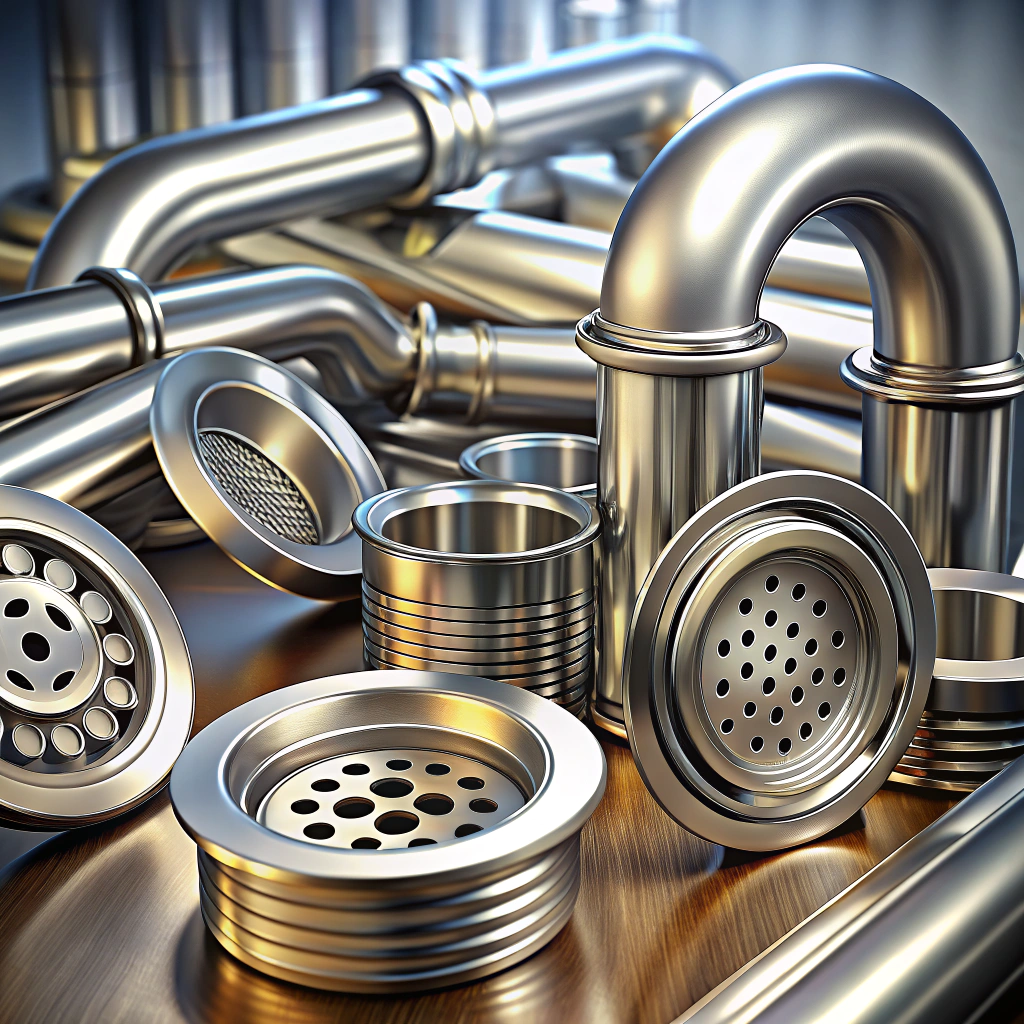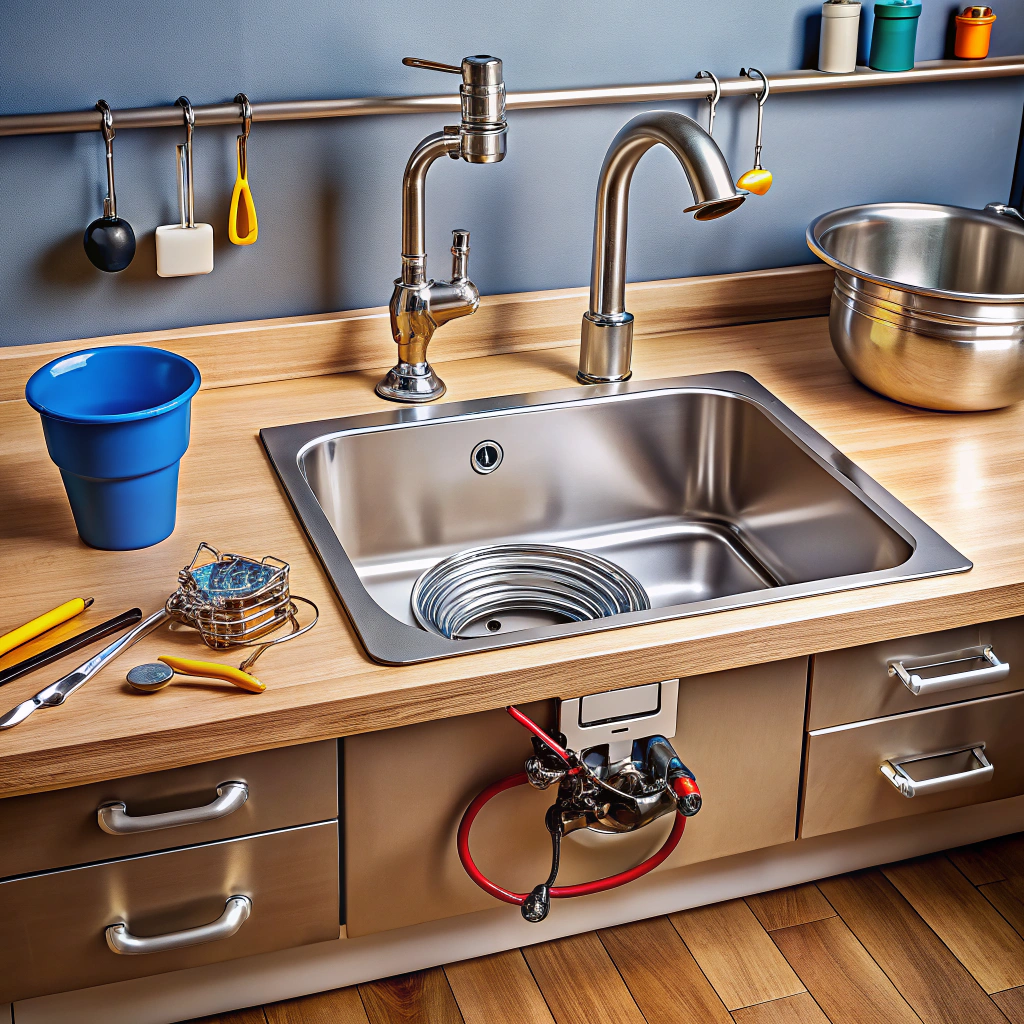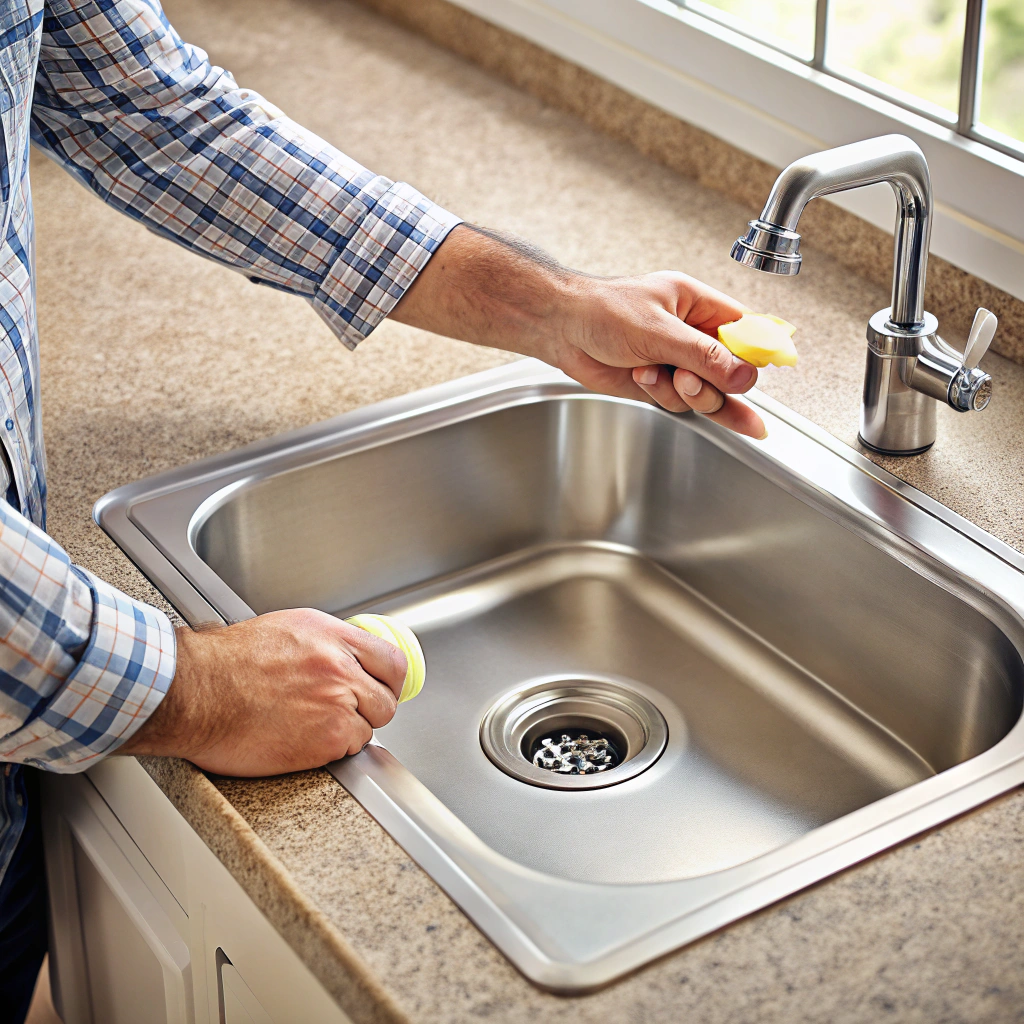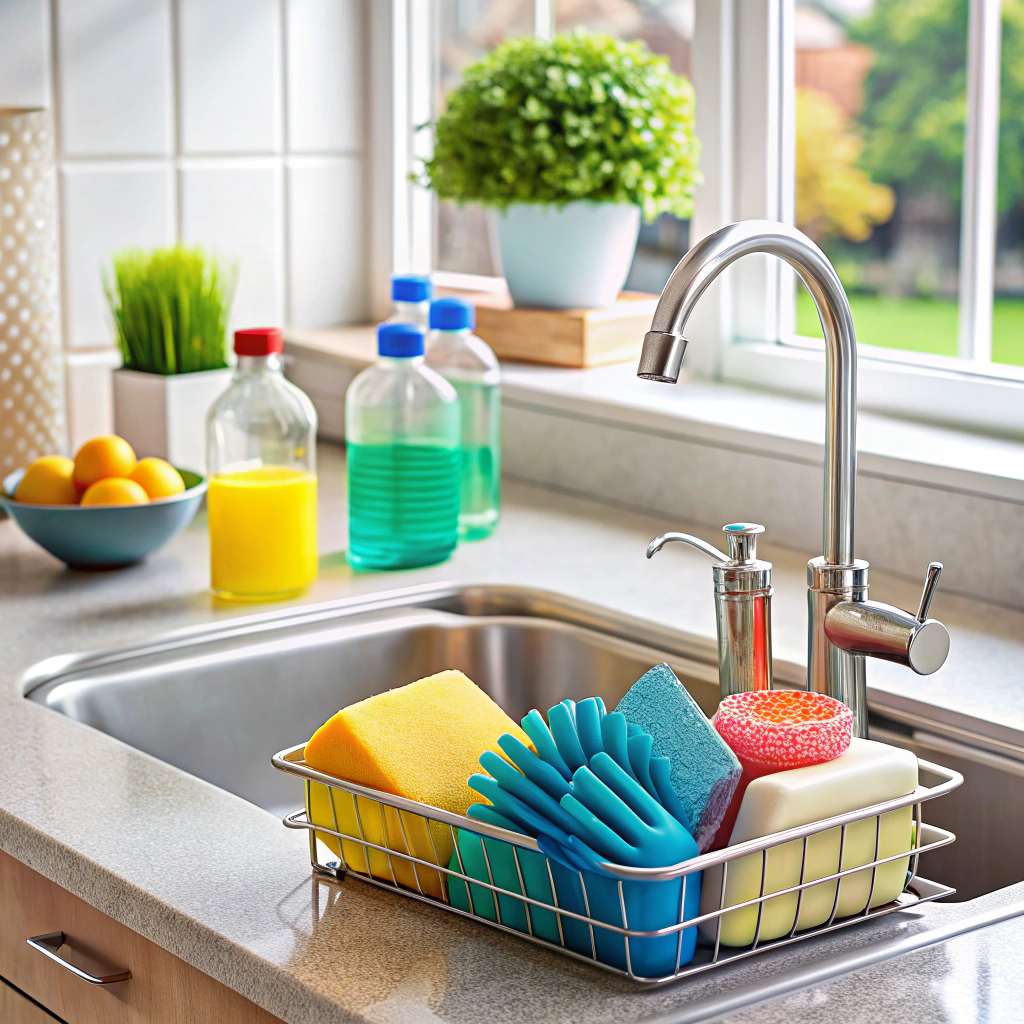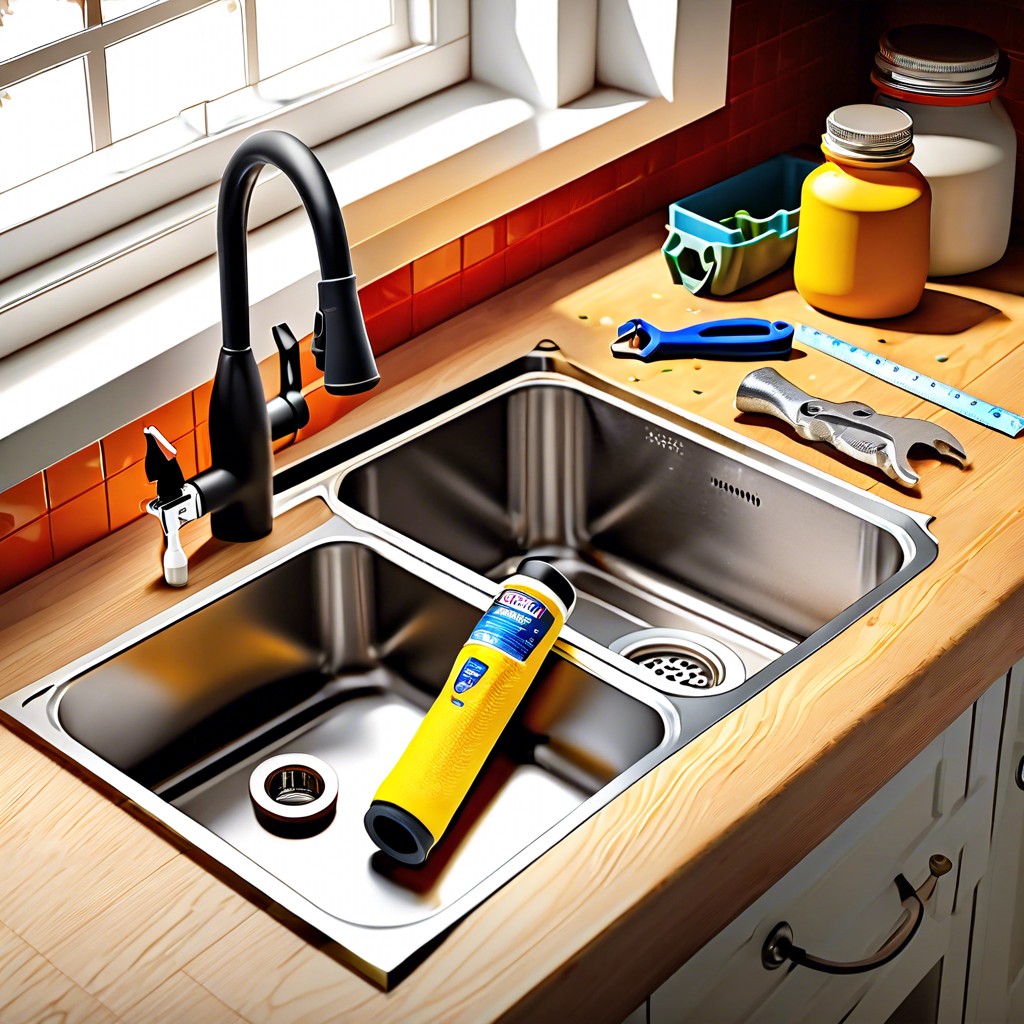Last updated on
Your sink gurgles when your washing machine drains due to potential air pressure imbalances or partial blockages in the plumbing system, which you’ll learn how to address efficiently.
Key takeaways:
- Clogged drain line may cause sink gurgling, use baking soda and vinegar or a drain snake to clear it.
- Blocked vent pipe can lead to sink gurgling, check for debris or animal intrusions.
- Improper drainage system design can cause gurgling, ensure proper slope and pipe diameter.
- Connection between washer and sink drains can create gurgling, consider adding an air admittance valve.
- Checking vent pipe from outside can prevent gurgling, use a plumbing snake or garden hose.
What's Inside
Clogged Drain Line
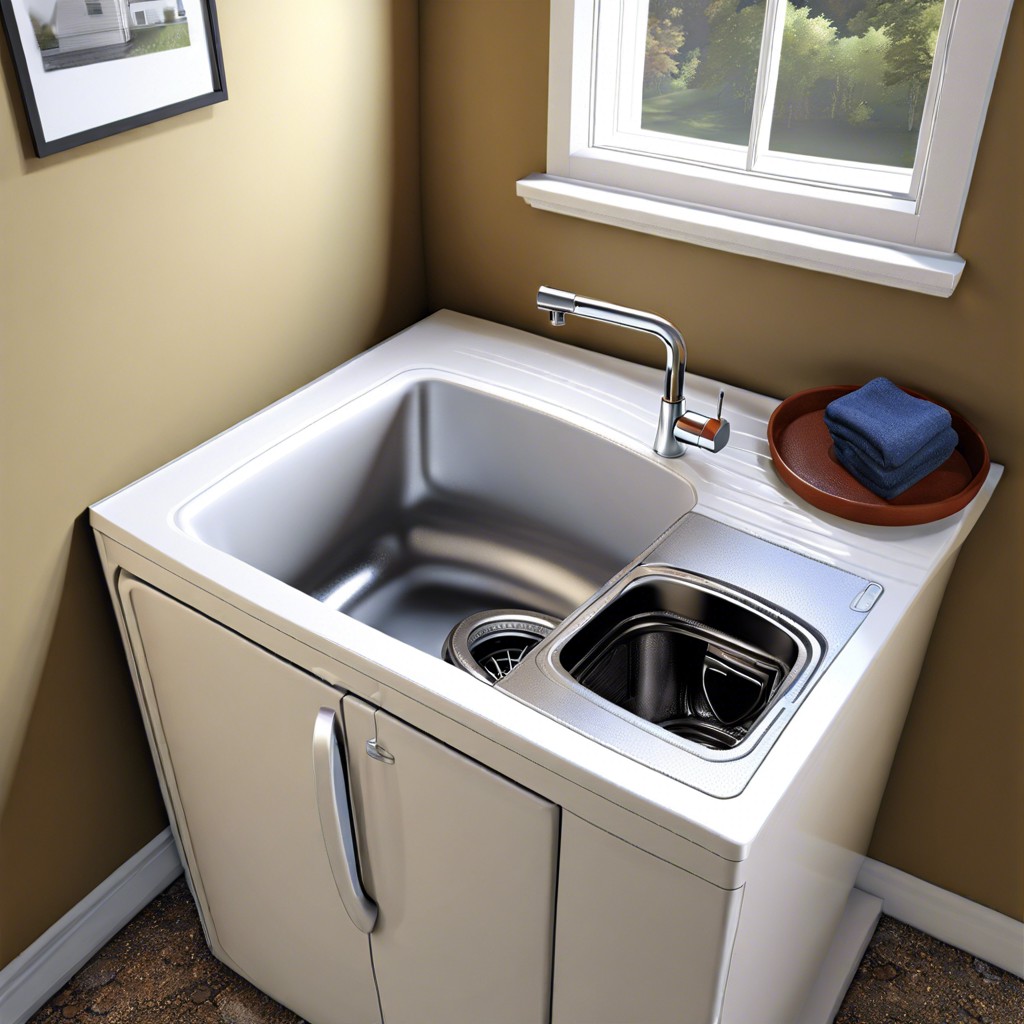
If your washing machine and sink share the same drainage system, a clog can disrupt the flow. Here are some quick insights:
Grease and food debris from the sink can accumulate in the pipes over time. You’d be surprised how fast bacon fat and coffee grounds can turn into a sloppy mess that blocks water flow.
Lint from the washing machine is another usual suspect. Tiny fibers can sneak past the filter and lodge themselves in the drain, creating a woolly barricade.
If water can’t flow freely, back pressure builds, causing air bubbles to gurgle through your sink drain. It’s like your sink is trying to belch but doesn’t quite know how.
A common household trick is using a combination of baking soda and vinegar to clear minor clogs. Pour a cup of baking soda down the drain, followed by a cup of vinegar. Let it fizz and work its magic for about 15-20 minutes, then flush with hot water.
For more stubborn clogs, a drain snake or plumbing auger can help. They’re not just for pro plumbers; you can find one at a hardware store and give it a whirl.
Think of it as spring cleaning for your pipes. Keeps things flowing smoothly and your sink gurgle-free.
Blocked Vent Pipe
Alright, let’s dive into the mysterious world of vents. Your plumbing system needs these vents to function properly. Think of them like the lungs of your home’s drainage system. If they get blocked, bad things happen.
Here are a few reasons why a vent might get blocked:
Debris: Leaves, dirt, even stray tennis balls can find their way into the vent pipe, especially if the cap is missing or damaged.
Critters: Yes, squirrels, birds, or the occasional raccoon might decide that your vent pipe looks like a cozy little condo.
Snow and Ice: In colder climates, a vent pipe can freeze over in winter. When Jack Frost gets playful, your pipes get cranky.
A blocked vent pipe means air can’t flow properly. The result? A gurgling sink. The pressure builds up when your washing machine drains, and the gurgling sound is like your plumbing’s frustrated sigh. Make sure to check the vent caps on your roof regularly. Keep an eye out for any unusual visitors or debris.
To keep things simple, remember: Clear vent means happy pipes.
Improper Drainage System Design
Sometimes, the issue boils down to the design of your drainage system. Think of it as trying to navigate a maze with dead ends. If the drainage pipes are too narrow or not properly angled, water and air might struggle to move through them efficiently. This causes that ominous gurgling sound you hear.
Here are some key points:
If the pipes are too close to each other, water from the washing machine can force air through the sink drain, creating gurgles.
A poorly angled pipe might not drain well, leading to water buildup and air pockets.
Long horizontal pipes can also cause problems since they might not provide enough momentum for water to flow smoothly.
Ensure your drainage system is designed with proper slope and pipe diameter to prevent these hiccups.
Sometimes, it’s not easy to spot these design flaws without a pro’s help, but understanding the basics can give you a good starting point.
Connection Between Washer and Sink Drains
Sometimes, the washing machine and sink share the same drainage system. This can create some noisy issues. When the washer drains, it discharges water at high speed, creating a sort of plumbing rollercoaster.
Because of the shared path, the volume and velocity of water can push air back up through your sink drain. This is the root cause of that lovable gurgling sound. It’s like a backstage pass to your pipes’ greatest hits.
Think of it as a traffic jam in a plumbing highway. The force from the washer’s drain creates a bottleneck, leading to air bubbles popping up through the sink.
In some older or improperly designed systems, this problem can be more pronounced. Tight spaces mean water and air struggle to flow smoothly, leading to that gurgle chorus.
Adding an air admittance valve or improving the venting system can sometimes help. Better yet, call a plumbing wizard to analyze your specific situation and make the right adjustments.
Checking Vent Pipe From Outside
Start by locating your vent pipe, often found on the roof. While scaling the roof may not be everyone’s idea of a good time, it’s crucial to ensure it’s not blocked. If you’re feeling adventurous and have a sturdy ladder, climb up and take a peek.
Make sure to wear shoes with good grip; no one wants a surprise slip-and-slide on their roof. Inspect the vent opening for leaves, debris, or bird nests. Those feathery squatters can be a real nuisance.
If you spot any blockages, use a plumbing snake or a long pole to clear them out. Or, if you’re like me and prefer to avoid spider encounters, a high-powered garden hose might do the trick. A good blast of water can often dislodge small obstructions.
Remember, if heights or DIY projects make your knees wobbly, a roofing professional or plumber can help. They’ll have the right tools and the expertise to get your vent pipe back in top shape, bird-nest-free.
Snaking the Drain
Consider renting or buying a drain snake, also known as a plumber’s auger. It’s like a metal rope with a bad attitude for clogs.
First, remove the drain cover. Slowly insert the snake into the drain. Turn the handle clockwise to dig into the clog. This is not the time to be timid – show that clog who’s boss.
As you twist and push, you’ll feel resistance. That’s the clog fighting back. Keep turning and pushing until it gives way. You might pull out some pretty gnarly stuff. Avoid sharing those discoveries with friends at dinner parties.
Once it moves freely, run the water to see if the gurgling stops. If it’s quieter, you’ve won. If not, try a few more rounds or consider seeking professional help – for the drain, not you.
Calling a Professional Plumber
Sometimes, no matter how much you channel your inner DIY superhero, the sink just won’t stop its gurgling symphony. That’s when it’s time to call in the pros.
Professional plumbers have specialized tools, like cameras that can go down your pipes to pinpoint exactly where the issue lies. This isn’t something you can MacGyver with a smartphone and a selfie stick.
They can also check for complex issues like a misaligned drainage system or an obscure blockage deep within the plumbing that requires more than just a plumber’s snake to fix.
Plumbers can spot problems that aren’t immediately obvious to the untrained eye. For example, they might notice early signs of pipe corrosion or minor leaks you didn’t even know existed.
Calling a plumber may also save you money in the long run. A misdiagnosed problem or improper DIY fix can end up costing more to repair than the initial issue. So, if your sink is still gurgling after you’ve tried everything, it might be time to bite the bullet and make the call.
